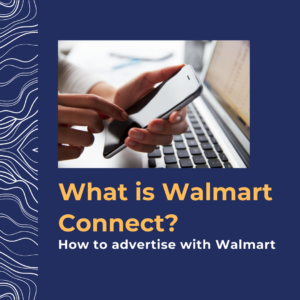The young Millennial and Gen Z shoppers differ from older Gen X and Boomers in many respects. One major difference is in product brand loyalty. Younger shoppers are less loyal to a retailer or product than their parents and grandparents. Two reasons for this are that younger shoppers:
- Seek lower prices on quality products.
- Want products that are more than a brand; products that identify with their values.
To serve these shoppers, more retailers are expanding their assortment of these types of items. One way is partnering with suppliers to invest more in private label product offerings.
What Is Private Label?
Private label (or private brand, store brand, own brand) products are items developed and distributed by a supplier and then sold by a retailer under the retailer’s name (or company private label name).
Private label products are most prevalent in consumables (from canned goods to makeup), but can also be found in areas such as hardware, automotive, and apparel. One retailer may have numerous private labels across multiple categories.
If you’re considering approaching Walmart with a private label option, we have information that can help. Check out our blog How to Sell to Walmart: Get Your Product in Walmart in 4 Steps.
Advantages of Private Label
Investing in private label products has benefits for both retailers and suppliers:
Supplier Private Label Benefits
Beginning the relationship: For suppliers trying to partner with a retailer for the first time, private label offerings can be their ticket in the door. A big-box retailer may not be seeking to add additional brand names to its peanut butter assortment but would consider partnering with a supplier to produce its private label offering.
Expanding shelf space: At the same time, suppliers that already have their brands on the shelf sometimes pull “double duty.” They also produce private label products that sit alongside their name brands on the shelf. This allows the supplier to collect additional sales (at a cut margin) from shoppers seeking a lower price on a quality product.
Retailer Private Label Benefits
Expanding customer base: Retailers see sales growth from investing in private label. The first way is in expanding to new customers. Those looking for a bargain will gravitate to lower-priced goods and are willing to try a store brand to save money.
More profit: There’s another big reason retailers love selling their store brands over national brands: private label items come with a higher margin. The retailer makes more profit selling a private label item than the name brands.
Winning at the shelf: One of the hidden benefits of investing in private label is piggybacking off the name brand’s advertising efforts. While retailers may not have the budget to advertise their store brands (see Downsides to Private Label below), store placement is still key. A national brand can spend millions of dollars to lure the customer into the store, but the final decision is still made at the shelf. Lower pricing, shelf signage, and feature placement can still draw the customer to the private brand selection to capture the sale.
Downsides to Private Label
With all the advantages to supporting a supplier through a private label offering, there are a few obstacles to be aware of:
Negative stigma: For shoppers not familiar with how private label works behind the scenes, these items sometimes come with a negative stigma. It’s assumed that if it’s not a brand name and the price is low, the quality of the product must be compromised. This makes it difficult to build loyalty (or even a first-time try) to these items.
Limited availability: Another factor is availability. A retailer’s private label line is only available in their store or on their website. The national brands have a greater reach being available in multiple retailers.
Marketing challenges: Marketing is also a disadvantage for private label. Established brands can use their entire marketing budget to promote their items, while the retailer is limited with other budget needs. The upside is the big brand might lure the customer to the store, while the private label option (featured strategically by the brand) can cause the shopper to change their mind at the shelf.
Private Label and Ecommerce
For the few obstacles facing private label in a brick-and-mortar store, online is where these items get a place to shine. Savvy retailers learned early on the power of promotion through a strategic algorithm.
For example, try a search at Walmart.com for aspirin, mustard, peanut butter, or paper plates. There are many brands to choose from, but what names are dominating the first few choices? Equate, Great Value, or other Walmart private brands!
Ecommerce brought private label marketing and promotion to a new level. From top search ranking to top placement in “suggested items” or “other shoppers also bought,” it’s a great way to promote the store’s brand.
Private Label vs. White Label
When discussing private label or “generic” products, the term white label is sometimes used interchangeably with private label. While they do have some similarities, there are slight differences when it comes to how each works in retail.
Simply put, private label refers to a distinct brand sold exclusively in one retailer. The retailer usually contracts with one or more suppliers to produce and package a product for sale in their store. Great Value is an example of a private label brand for Walmart Stores. You will not find Great Value at Target or Walgreens.
By comparison, white label refers to a generic product, not the brand itself. The generic product is then sold to multiple retailers for the purpose of the retailer adding its branding. Popular white label products include items like coffee, mugs, water bottles, cosmetics, and phone accessories.
Walmart Private Label
Walmart has been offering its customers private label options for decades. From grocery to electronics and pets to apparel, there are dozens of store brands under the Walmart umbrella. Some of the more popular ones include:
Great Value
Walmart’s Great Value grocery products were launched in the early 1990s. The brand continues to expand and has gained trust with value-seeking shoppers.
There are hundreds of household consumable items in the Great Value assortment. Current offerings include milk, canned goods, sliced bread, frozen vegetables, light bulbs, trash bags, cheese, paper plates, condiments, cleaning products, and many other traditional grocery store items.
Walmart has experienced interesting experimentation with Great Value’s packaging design. In 2009, Walmart changed Great Value labels to white with sharp blue text. The thought behind this change was that Great Value items would stand out to customers looking at an aisle full of options and be more easily identifiable.
After a few years of this transition, research showed that some customers viewed “cheap labeling” to translate to a cheap quality product.
Great Value packaging changed designs again in 2013. This new design was aimed at matching closer to its brand counterpart on the shelf.
Equate
Equate is Walmart’s private brand of items sold in pharmacy and health and beauty. Equate was actually an independent brand sold at various retailers before being purchased by Walmart.
Items under the Equate label include over-the-counter medicines, toiletries, lotions, first aid products, hygiene, and more.
Sam’s Choice
The Sam’s Choice store brand was released in 1991 and is named for Walmart founder Sam Walton. It originally covered a wide variety of grocery items, but most were re-branded under Great Value.
Sam’s Choice products include mostly soft drinks, cookies, and other assorted snacks.
Ol’ Roy
Ol’ Roy is one of Walmart’s oldest private label brands, launched in 1983. Named after Sam Walton’s dog, Ol’ Roy is Walmart’s store brand dog food line.
In the United States, Ol’ Roy is the number one selling brand of dog food.
Apparel Brands
Walmart’s private label offerings stretch outside of grocery and consumables. Men’s, women’s, and children’s apparel contain many Walmart brands including George, Terra & Sky, Time and Tru, Wonder Nation, Athletic Works, Brahma, No Boundaries, and Secret Treasures.
Conclusion
For suppliers wanting to expand their shelf space, customer base, and sales, private label is an option worth exploring. It’s a great way to begin a relationship with a retailer or to support their store brand with a proven sales product. New shoppers are looking for these private label options in all categories, both in stores and online.
Whether you are a current Walmart supplier or trying to get in for the first time, Walmart is constantly looking for new private label options in each department. That’s where we can help!
To learn more about private label, set up a free 15-minute consultation with the team at 8th & Walton.





